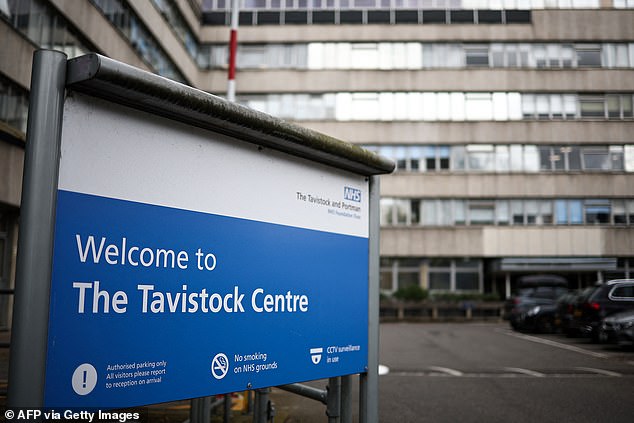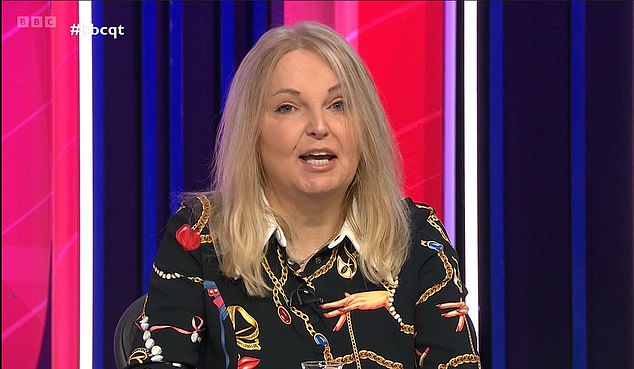It has been three and a half years until the Cass Report was finally published, an in-depth investigation into the most controversial topic in recent years: the medical treatment of those who feel they live in the wrong gender.
There is a long-standing approach to reporting of this type. Find someone highly respected in your field. Pay them to ask questions and write a report. Publish and read the report. Put it on a shelf and forget about it.
This should not happen with the Cass report. The issue is too important to ignore.
Hilary Cass is a pediatric consultant. Her concern is the children, their treatment and the way they have been influenced by what they have been told about being a girl or boy and changing sex.
Of equal concern is the way in which the medical profession and other adults charged with caring for young people have dealt with pressure from the trans lobby since as far back as 2010, when the Equality Act included gender reassignment as a protected characteristic.

Keira Bell sued Tavistock over its rush to give her puberty blockers and hormones to become a boy, which led to her having a double mastectomy.


London’s Tavistock clinic finally closed last month, and a few weeks ago NHS England confirmed that gender identity clinics would no longer prescribe puberty blockers.
When former Women and Equalities Minister Maria Miller took charge of the newly formed Women and Equalities Committee in 2015, the first issue they chose to address was “equality issues affecting transgender people”.
Why, I asked at the time, when trans people are such a small minority? Surely you should be primarily concerned about women: about violence on the street and in the home, about equal pay, discrimination, and lack of childcare. The list was long and familiar, but it was discarded. She had been told that it was trans people who were experiencing widespread suffering. She must consider her needs first.
It was the first indication I had of a powerful lobby, concerned with those who were unhappy with the sex they were born with. Nobody was talking then about children suffering from “gender dysphoria.” And no one thought the children needed special services. In 2009, just 97 children were referred to GIDS, the NHS gender development service, based at the Tavistock Centre. In 2021, more than 5,000 children were referred. What’s going on?
My anxiety increased after an interview on Woman’s Hour with trans activist India Willoughby. What influence was Stonewall having on the NHS and the apparent elimination of women from maternity care? Why did trans women call themselves real women? Why were so many children seeking treatment after being “born in the wrong body”?


My anxiety increased after an interview on Woman’s Hour with trans activist India Willoughby (pictured from BBC Question Time in February).
In my research for an article I spoke to Stephanie Davies-Arai, director of Transgender Trend. She was desperately concerned that young children were being given puberty blockers (medications that had not been adequately tested) that appeared to be leading young people to undergo gender reassignment surgery. I was shocked and expressed my horror in an article I wrote.
My friends had warned me not to get involved in this toxic debate. I couldn’t ignore the harm that was being done to women and children but inevitably, like so many others who were equally shocked, I came under full attack from the trans lobby.
There were threats of murder and rape. My alma mater, the University of Hull, was told not to name any lecture halls after me. (The vice-chancellor was brave enough to ignore them.) The BBC ignored demands to sack me but were terrified to discuss the issue. They didn’t fire me. I canceled myself by quitting smoking. Of course, harassment by trans activists has not stopped.
Dr. Cass has suffered just as I have. In the introduction to his report, he writes about the criticism he has faced for speaking to people on both sides of the debate: those who advocate for gender affirmation and those who urge more caution. He sometimes ignored the knowledge of experienced doctors. “There are few areas of healthcare,” he writes, where professionals are so afraid to openly discuss their views, where people are vilified on social media, and where name-calling reflects the worst bullying behavior. This must stop.’
She is a brave woman who has put up with such nonsense for almost four years of her life.
It was Keira Bell’s appearance in court that brought the harm to children to the forefront. She was suing Tavistock over her rush to give her puberty blockers and hormones to become a boy, which led to her having a double mastectomy. She was just 16 years old when she was treated at Tavistock and argued in court that she was too young to give her informed consent.
In 2021 he lost the case, but it was his bravery in speaking out and the actions of Tavistock’s whistleblower, psychiatrist Dr David Bell, that fatally undermined the power Tavistock had enjoyed. Dr Bell reported that many children who had come as patients were not in a position to make an informed decision. Some were simply too young, some had autism, and some were gay. What they needed was psychotherapy, not powerful drugs.
Since Dr. Hilary Cass began her research, some of what Dr. Bell said has been taken into account, albeit belatedly. The Tavistock finally closed at the end of last month. And a few weeks ago, NHS England finally confirmed that gender identity clinics would no longer prescribe puberty blockers.
Two new gender clinics are due to open this month in London and Liverpool, where the emphasis will be on talking about gender dysphoria. What psychological difficulties does a child face? What effect does home life have on a girl or boy? It is surely better to discuss anxieties with a knowledgeable professional than to take powerful medications that will change your life forever.
Dr. Cass is not only concerned with medical intervention, but also with “social transition.” It is, he says, “an active intervention because it can have significant effects on the child or young person in terms of psychological functioning… it is not a neutral act and better information on outcomes is needed.”
I hope this means that more primary school teachers will no longer be encouraged to allow children to change their name without informing parents. They are teachers, not psychiatrists.
And if you have a five-year-old son who wants to go to school in his sister’s skirt, let him do it. It’s about style, a little fun, maybe jealousy or maybe, as in my case, defiance. My six-year-old son tries on shoes for school and opts for the highly advertised Princess shoes. ‘No,’ said the shopkeeper, ‘they are for girls.’ “I don’t care,” my son responded.
I bought them. A week later, ‘mom’, they feel uncomfortable. Can I get some sneakers? Of course. There’s no need to make such a fuss about it.
And Cass must be congratulated for her bravery and common sense.
Nicola is my kind of protagonist
Why on earth would Bridgerton star Nicola Coughlan be surprised to be the romantic lead in the Netflix drama? Why do people assume she considers herself “horrible,” as she asked in a recent interview?
Coughlan is talented, charming and attractive. As Penelope Featherington, she’ll be an excellent leading lady in the upcoming third season of Bridgerton, and she’ll give the rest of us hope that you no longer need to be tall and thin to be a sex symbol.


Nicola Coughlan gives us hope that you don’t have to be tall and thin to be a sex symbol
The worst hospital? It’s mine!
It’s concerning to find nationwide data that ranks your local hospital as the worst place in the country to break a bone. Especially when the report, produced this week, is from the Royal Osteoporosis Society (ROS).
Twelve years ago, I was rushed to the Royal Free Hospital in Hampstead with agonizing pain in my left arm after slipping on the ice outside my house.
They took an x-ray. A nurse said she wasn’t sure what condition my humerus was in and she sent me home in a sling. A week later, it was discovered that it was so broken that it needed surgery.
Then last November I fell at home and was rushed to the Royal Free only to discover, finally, that I had broken a vertebra. After a long wait, they decided to let it heal on its own.
On no occasion was I offered a bone scan. The ROS says every hospital should have a Fracture Liaison Service to ensure bones are tested after the first fracture and medication is given if osteoporosis is detected.
Hopefully we don’t break anything else before the change is implemented.


